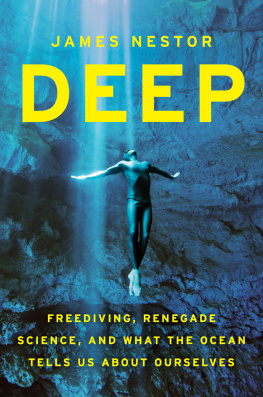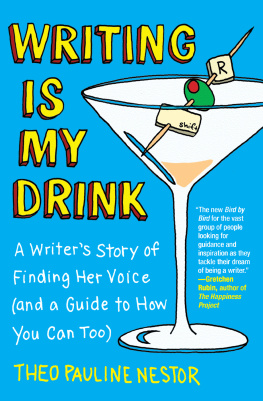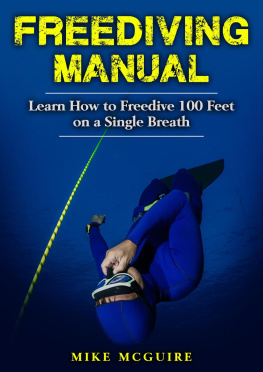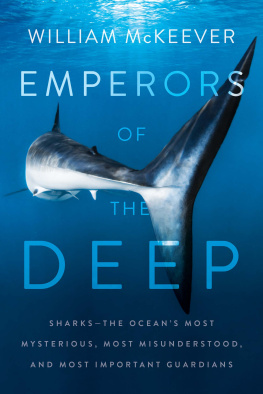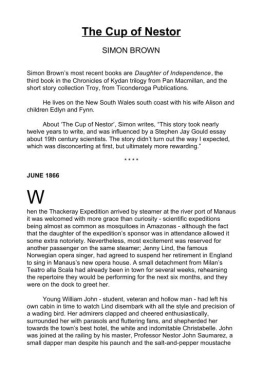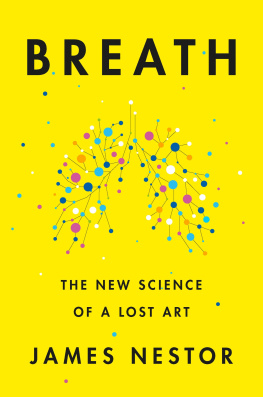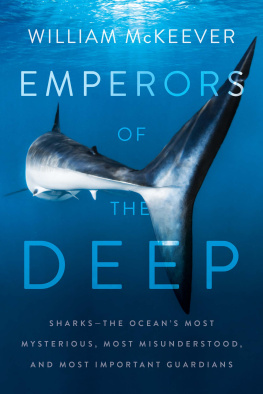Copyright 2014 by James Nestor
All rights reserved
For information about permission to reproduce selections from this book, write to Permissions, Houghton Mifflin Harcourt Publishing Company, 215 Park Avenue South, New York, New York 10003.
www.hmhco.com
Library of Congress Cataloging-in-Publication Data is available.
ISBN 978-0-547-98552-7
e ISBN 978-0-547-98563-3
v1.0614
Portions of this book originally appeared in slightly different form in Outside and Mens Journal.
THIS BOOK PRESENTS THE IDEAS AND EXPERIENCES OF ITS AUTHOR. IT IS NOT INTENDED TO PROVIDE INSTRUCTION FOR FREEDIVING. THE AUTHOR AND THE PUBLISHER DISCLAIM LIABILITY FOR ANY ADVERSE EFFECTS RESULTING DIRECTLY OR INDIRECTLY FROM INFORMATION CONTAINED HEREIN.
0
IM A GUEST HERE , a journalist covering a sporting event that few people have heard of: the world freediving championship. Im sitting at a cramped desk in a seaside hotel room that overlooks a boardwalk in the resort town of Kalamata, Greece. The hotel is old and shows it in the cobweb cracks along the walls, threadbare carpet, and dirt shadows of framed pictures that once hung in dim hallways.
Ive been sent here by Outside magazine, because the 2011 Individual Depth World Championship is a milestone for competitive freedivingthe largest gathering of athletes in the history of the little-known sport. Since Ive lived my whole life by the ocean, still spend much of my free time in it, and often write about it, my editor thought Id be a good fit for the assignment. What he didnt know was that I had only a superficial understanding of freediving. I hadnt done it, didnt know anyone who had, and had never seen it before.
I spend my first day in Kalamata reading up on the competition rules and the sports rising stars. Im not impressed. I Google through photographs of competitive freedivers in mermaid outfits, flashing hang-loose signs while floating upside down in the water, and blowing intricate bubble rings from the bottom of a swimming pool. It seems like the kind of oddball hobby people take up, like badminton or Charleston dancing, so they can talk about it at cocktail parties and refer to it in their e-mail handles.
Nonetheless, I have a job to do. At five thirty the following morning, Im at the Kalamata marina talking my way onto a twenty-seven-foot sailboat that belongs to a scruffy Qubecois expat. His is the only spectator boat allowed out at the competition, which is held in the deep open waters about ten miles from the Kalamata marina. Im the only journalist aboard. By 8:00 a.m., weve tied up to a flotilla of motorboats, platforms, and gear that serves as the competitors jumping-off point. The divers in the first group arrive and take positions around three yellow ropes dangling off a nearby platform. An official counts down from ten. The competition begins.
What I see next will confound and terrify me.
I watch as a pencil-thin New Zealander named William Trubridge swallows a breath, upends his body, and kicks with bare feet into the crystalline water below. Trubridge struggles through the first ten feet, heaving broad strokes. Then, at about twenty feet, his body loosens, he places his arms by his sides in a skydiver pose, and he sinks steadily deeper until he vanishes. An official watching a sonar screen at the surface follows his descent, ticking off distances as he goes down: Thirty meters... forty meters... fifty meters.
Trubridge reaches the end of the rope, some three hundred feet down, turns around, and swims back toward the surface. Three agonizing minutes later, his tiny figure rematerializes in the deep water, like a headlight cutting through fog. He pops his head up at the surface, exhales, takes a breath, flashes an okay sign to an official, then gets out of the way to make room for the next competitor. Trubridge just dove thirty stories down and back, all on one lungful of airno scuba gear, air tube, protective vest, or even swim fins to assist him.
The pressure at three hundred feet down is more than ten times that of the surface, strong enough to crush a Coke can. At thirty feet, the lungs collapse to half their normal size; at three hundred feet, they shrink to the size of two baseballs. And yet Trubridge and most of the other freedivers I watch on the first day resurface unscathed. The dives dont look forced either, but natural, as if they all really belong down there. As if we all do.
Im so dazzled by what I see that I need to tell somebody immediately. I call my mother in Southern California. She doesnt believe me. Its impossible, she says. After we talk about it, she dials some friends of hers whove been avid scuba divers for forty years and then calls me back. There is an oxygen tank at the seafloor or something, she says. And I suggest you do your research before publishing any of this.
But there was no oxygen tank at the end of the rope, and if there had been, and if Trubridge and the other divers had actually breathed some of it before ascending, their lungs would have exploded when the air from the tank expanded in the shallower depths, and their blood would have bubbled with nitrogen before they reached the surface. Theyd die. The human body can withstand the pressures of a fast three-hundred-foot underwater ascent only in its natural state.
Some humans handle it better than others.
Over the next four days, I watch several more competitors attempt dives to around three hundred feet. Many cant make it and turn back. They resurface with blood running down their faces from their noses, unconscious, or in cardiac arrest. The competition just keeps going on. And, somehow, this sport is legal.
For most of this group, attempting to dive deeper than anyoneeven scientistsever thought possible is worth the risk of paralysis or death. But not for all of them.
I meet a number of competitors who approach freediving with a more sane outlook. They arent interested in the face-off with mortality. They dont care about breaking records or beating the other guy. They freedive because its the most direct and intimate way to connect with the ocean. During that three minutes beneath the surface (the average time it takes to dive a few hundred feet), the body bears only a passing resemblance to its terrestrial form and function. The ocean changes us physically, and psychically.
In a world of seven billion people, where every inch of land has been mapped, much of it developed, and too much of it destroyed, the sea remains the final unseen, untouched, and undiscovered wilderness, the planets last great frontier. There are no mobile phones down there, no e-mails, no tweeting, no twerking, no car keys to lose, no terrorist threats, no birthdays to forget, no penalties for late credit card payments, and no dog shit to step in before a job interview. All the stress, noise, and distractions of life are left at the surface. The ocean is the last truly quiet place on Earth.
These more philosophical freedivers get a glassy look in their eyes when they describe their experiences; its the same look one sees in the eyes of Buddhist monks or emergency room patients who have died and then been resuscitated minutes later. Those who have made it to the other side. And best of all, the divers will tell you, Its open to everyone.
Literally everyoneno matter your weight, height, gender, or ethnicity. The competitors gathered in Greece arent all the toned, superhuman Ryan Lochtetype swimmers you might expect. There are a few impressive physical specimens, like Trubridge, but also chubby American men, tiny Russian women, thick-necked Germans, and wispy Venezuelans.
Freediving flies in the face of everything I know about surviving in the ocean; you turn your back on the surface, swim away from your only source of air, and seek out the cold, pain, and danger of deep waters. Sometimes you pass out. Sometimes you bleed out of your nose and mouth. Sometimes you dont make it back alive. Other than BASE jumpingparachuting off buildings, antennas, spans (bridges), and earth (geological formations)freediving is the most dangerous adventure sport in the world. Dozens, perhaps hundreds, of divers are injured or die every year. It seems like a death wish.
Next page
